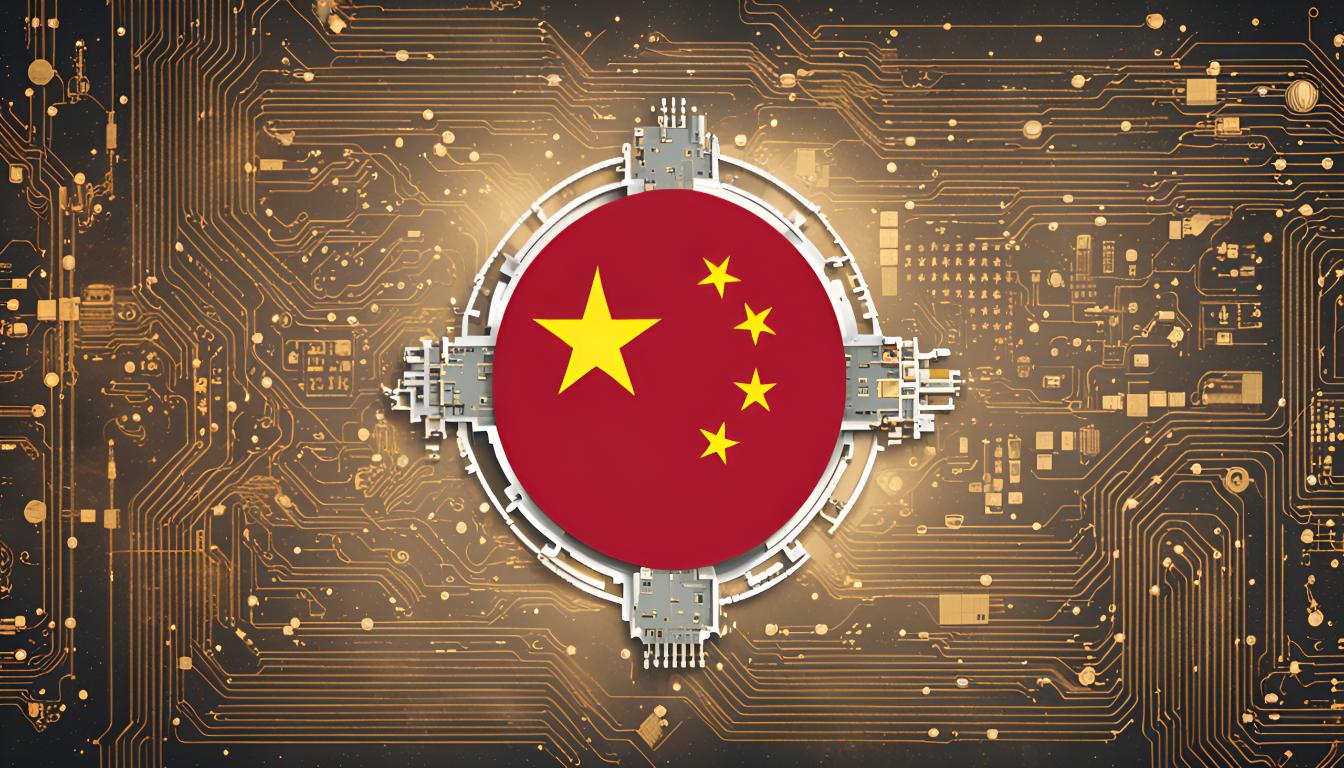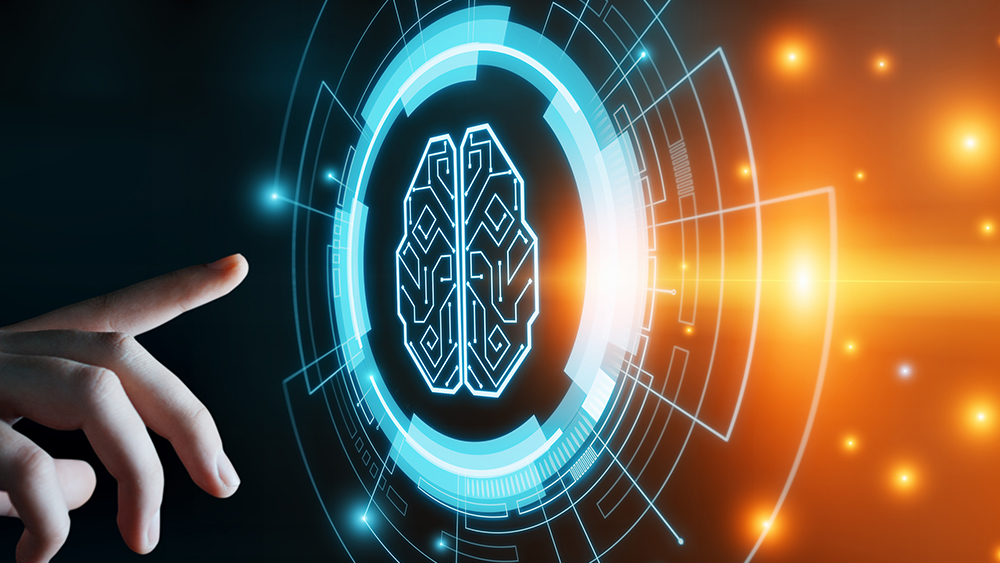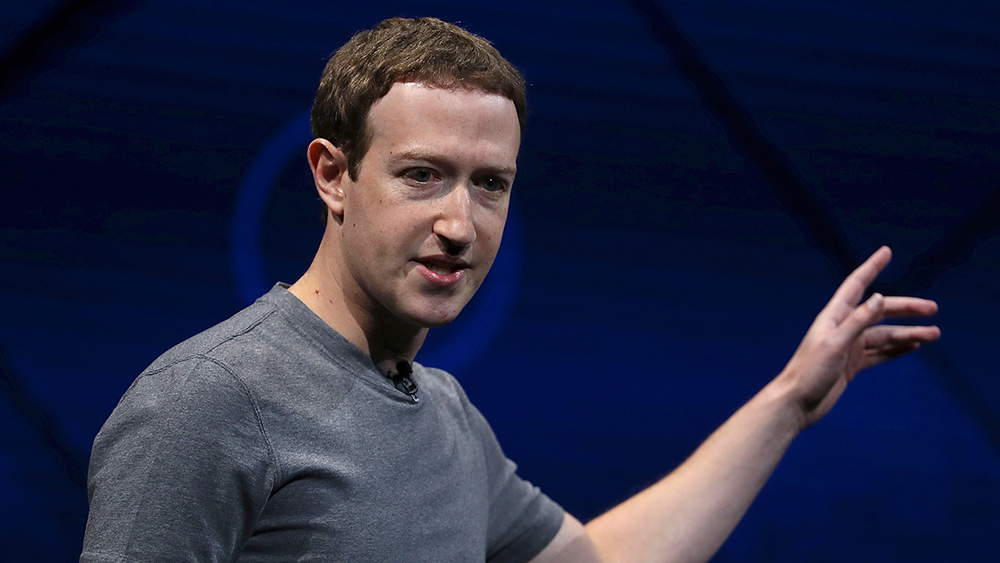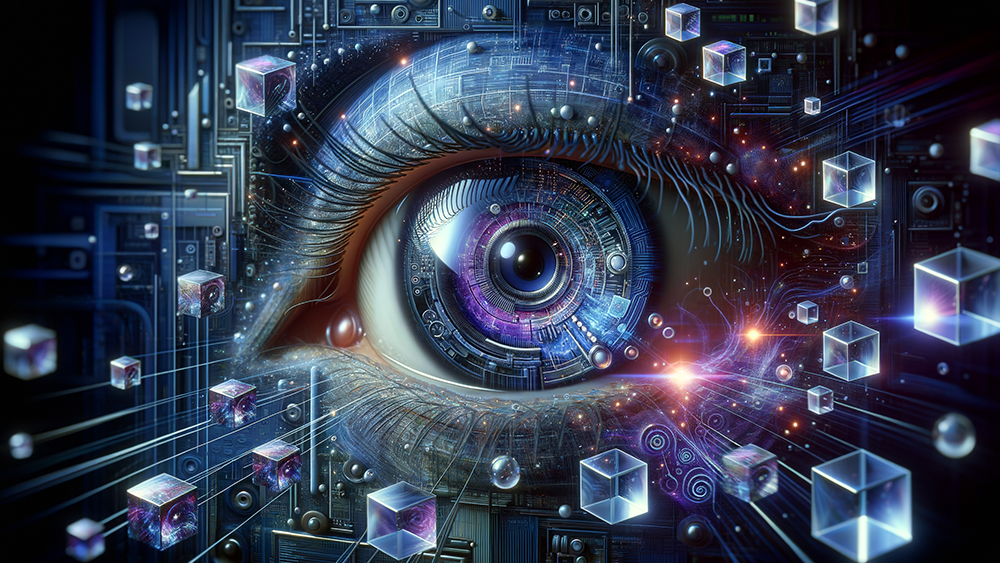
The full episode will be posted at these channel links:
Brighteon.com: Brighteon.com/channels/hrreport Rumble: Rumble.com/c/HealthRangerReport
The following partial transcript is auto-generated. Please excuse the occasional errors.
Welcome to Brighteon Broadcast News for Wednesday, January 3 2024. Hard to get used to that. Mike Adams here. Thank you for joining me today. I've got an incredible treat for you today. Because I interviewed Zach Vorhies, the Google whistleblower. He and I had a detailed conversation about AI, chat GPT and large language models, the singularity, and what we call, well, I think I'm the one who said that NPCs are bio-LLMs. And Zack was like, yes, I've been thinking the same thing.
So you'll get to hear our discussion about that. NPC stands for non player character. It refers to the zombie humans that just regurgitate whatever they've been programmed with by CNN, or, you know, NPR or what have you. But this is an incredible conversation with Zack Vorhies coming up here pretty soon.
But before we get to that, I need to explain if you hear some background humming, maybe you can hear, it's the cooling fans on this. Well, I have a data science server in my office where I'm doing this recording. And it's a funny story, as part of our investment late last year into AI hardware. We had multiple servers ordered and installed in our data center. Actually, those servers are getting installed this week. But I said look, I want one of these servers, kind of a smaller one, sort of the the weakest one, I want it at my home, my home office. I want it at my home office so that I can do things with it, you know, locally, directly. I have, frankly, I have terabytes of files to work with in terms of doing training. I've got terabytes of videos, and I've got who knows how millions of documents... And I need to run a lot of these through the the AI training system. And I wanted to do that locally, where I can have absolute control over the files, because our training dataset is going to be extremely valuable, for reasons that will become obvious.
But the point is the way that you build large language models, which ultimately becomes chatbots. And remember, we're working on a chatbot project, we're gonna release free of charge open source to the public end of March coming up. It's like I guess 90 days away now. And it's going to have special knowledge in herbs, nutrition, off grid living, permaculture, growing food producing food, processing food, traditional Chinese medicine, indigenous medicine, alternative medicine, complementary medicine, Amazonian medicine, Tibetan Medicine, and so on and so forth. It's going to have all that knowledge in it. And the way you train it is you have to load the whole language model into the GPU of a graphics card. And that's why you need a really big expensive graphics card that has, for example, this case, 48 gigabytes of memory. And that's not even enough for the larger models, the larger models will take multiple cards, or in the case of what Open AI is doing, it will take racks upon racks of machines with Nvidia cards in them. And it will distribute the model across all those machines like you know, trillions of parameters, we're not in that space, we're in, let's say, tens of billions of parameters, but it's within our reach. This is all we need to have a chatbot that does a really good job in a certain area of expertise, which in our case is you know, nutrition, herbs and natural medicine and things like that.
So over the next several months, I'm going to be playing around with this machine and doing AI training on it. And so it's going to be here in in my recording office for a while. Once I get it all nailed down, I may move it somewhere else. But for the time being, you're going to hear this, this little hum in the background. I apologize for that. But I just I can't turn it off at the moment. Plus it's winter, and it's heating my office. It's the world's most expensive heater, but it does produce quite a bit of heat.
Why AI is the most important subject you need to fully grasp in order to succeed in the future of our world
Now, why AI? And why LLMs large language models, why do I keep talking about this subject? I want to take you back to the early 1990s. Now most of my audience is old enough to have been an adult at that time. So you probably remember the first time you heard about email, like somebody maybe asked you what's your email address? And you said, What's that? What's email? Or maybe you were the first one to have email? You were asking your friends, What's your email address? And they're like, what's that?
And then, you know, your your friends ended up getting AOL. So they had an email address at aol.com. And those people weren't really on the internet. They thought they were but they were just on AOL, dial up AOL. But the point is there were a lot of people in those very early days, who, when they first heard about things like websites or email, a lot of people thought, well, this is just a fad. Like people aren't going to live their lives sitting in front of their computers. That's absurd. You know, the yellow pages aren't going to be replaced with a computer. You know, businesses aren't going to do their business on a computer. That's a strange alien idea because people were stuck in the present way of doing things which in the late 1980s was, yeah, if you had a computer it just ran standalone ran by itself. And yeah, you could play games on it, you could have a spreadsheet, you know, we had a spreadsheet, it was very popular at the time called Lotus 123. Some of you probably remember Lotus 123. You mean you can enter numbers in different cells on a spreadsheet? And then other cells can be formulas, no way they can add other cells together and calculate averages? That's amazing!
And Lotus 123 became this multi billion dollar company. That was before Excel came along. But even though you had those computers, you couldn't talk to anybody else through your computer. You know, there was no internet in the early days, just a standalone PC. So a lot of people missed the boat on the rise of the Internet. And ultimately, as we now know, in retrospect, the world changed so dramatically, because of the rise of the Internet, that those people who did not embrace the internet really were left behind. If your business, for example, did not ultimately embrace the internet, and you still didn't have a web page in 2005, you know, people were like Hey, welcome to the new century here. You're supposed to have a web page, or they would ask you, what's your website? And you don't have one yet? You know, it's kind of embarrassing. It's kind of like, you know, being an 18 year old kid, who has to ride his bike to school because he doesn't have a car. Yeah, I don't have any wheels. Man, my parents won't let me drive. That's that's the way it was for a lot of people. They missed the boat on the internet, they thought it was a fad. And so they didn't learn how the Internet work, they didn't learn about email, they didn't learn about, you know, the World Wide Web, or publishing webpages or anything like that.
Now, I was running a software company in those years, by the way. In fact, my software company invented the very first email automation system. And it was licensed by hundreds of universities and corporations that government offices, ultimately, I sold off that company many years ago. But we were the very first ones to do that in the whole industry, we actually had an email sending system linked to your own internal customer database, or your student database, if you were a university. And universities, for example, would send out email alerts to their members, when there were like campus rapes or things like that, you know, emergency alerts or vacation, holiday announcements, whatever, they would use our technology to do that. And I remember that, as I was building that company in the 1990s, often I would encounter people who didn't know what email was. I would try to explain to them, they would say like, what do you do? Oh, well, I have an email automation technology company that links email, to an internal database in order to have customized emails that are sent to your customer base. It's got all kinds of complex logic in it, and so on. And they're like, what's email?
That's how I feel right now, today, talking about large language models and AI. Right now, I feel like most of the world doesn't know what happened in the last 12 months. It's kind of like, if the internet came on board suddenly, and you missed the boat you wouldn't know. But last year in AI, the large language models broke through this barrier of human intelligence. And right now, today's LLMs and AI agents are at least as intelligent as a very functional, decently high IQ human being. And in another year, these systems are going to be 10 times smarter than the smartest human being on planet Earth, or even the smartest human being that ever lived. And maybe in another year, they will be 100 times smarter than any genius that has ever lived that that we know of at least any genius on planet Earth. Maybe there's like an alien genius somewhere with a giant head that has like 10 brains and it wobbles around, you know, and it's hard to stand up, maybe it has to be in a low gravity planet or something. Maybe there's a super genius alien out there that we've never seen. But in terms of the smartest people on Earth, these AI systems will beat them all. No question about it within the next 12 months. And so, the world will change. From this milestone. This is a pivot point for the future of human civilization, the future of our planet, the future of our reality.
The inflection point of human vs. machine history has just been achieved
This inflection point will divide people into two groups. Number one: People who understand what's happening, and who get in front of it, who embrace it, and even exploit it, or you could say, you know, harness it, leverage it, versus group number two, which is people who dismiss it, and will be left behind, like those noobs, back in 2005, that still didn't have a webpage, or still didn't know what email was in 2005.
That's what's gonna happen right now. And to anyone out there listening, if you're skeptical about this, I've seen this before. I've seen major changes, like the rise of the Internet. And also like the dot com collapse in 2000, which I totally predicted publicly on the record, you know, people mocked me for it until it happened. And then kaboom, Shazam, you know, everything went down. That was easy to see coming. But what's about to happen? Now, because of the rise of AI, it's difficult for a lot of people to see, it's difficult to understand that a computer system, a machine is smarter than a human by every measure of intelligence that we currently use, you know, academic intelligence. Now, I'm not saying that the machine is better than a human being. I'm not saying the machine has the same morality. There are definitely issues there. I'm not saying the machine has the same spontaneity or the same spirit or the same consciousness, although Zack Vorhies and I do have an interesting conversation about all that. But in terms of being able to answer questions and pass tests, and even now engage in rudimentary reasoning, the machines are right now at, let's say, medium high human IQ level, which means that most of the people that you know, who have office jobs, who do things like send emails, write marketing, copy, you know, review forms, or whatever they do, they're obsolete in terms of a workforce.
I'm not saying they're worthless as human beings, because I value every human life, right. And I've repeated that multiple times, I value humanity. But what I'm saying is in terms of their economic productivity, what they can add to a digital economy, that skill set for about half the workforce is obsolete right now, today, January of 2024. Obsolete now, they just don't know it yet. And it's gonna take a while for businesses to fully incorporate these AI systems in order to replace these jobs one by one, but that process has already begun. You even see news from major corporations out there. I think IBM, for example, a couple of months ago, I remember headline they had halted hiring for, I don't know, thousands of jobs, I think it was because they figured, well, most of these jobs can be turned over to AI. And they're not wrong about that. And customer service jobs, people who answer customer service emails, or even on the phone, you know, voice prompting, and so on. Those jobs, for the most part are obsolete.
AI systems will take over, I would guess about 80% of the customer service jobs. To handle the first interaction with the customer, you know, the first complaint the first question, and only then if they can't handle it, then it would escalate to an actual human being. But that might only be 20% of the current support workforce. So I would say eight out of 10 customer service people lose their jobs in the next two years. Because these corporations will implement these language models.
And by the way, in some of the conversations that I've had with some of the people involved in machine learning systems, and the licensing of various technologies, I have learned that the number one area where this is going to be implemented is in health care. Yeah, in health care. Your days of talking to a human are just about over by the way, you're not going to be able to reach a human being to ask anything about your insurance policy, your coverage, your medical bill, no, no. It's all going to be automated. It's happening now. Every major medical group in the world is either in the process right now of building an AI system, or they're at least talking to AI providers about how they can build that system. And within the next 12 months, you're going to see sweeping changes across not only medicine, but also government and education, and home care, and even remote education. All these areas and more, tech companies you name it. We're gonna see a wave of replacements of humans whose jobs are now taken over by machines.
One machine can replace 50 human office workers
In fact, I was talking about this a few days ago, this machine that's in my office right now the ones screaming behind me, well, it's, it's not screaming yet it's just blowing. When it screams, you'll know, when it's crunching something it screams, it's like a gale force wind, you know, it's like a hurricane sweeping through my office, it sounds like a data center in here. When it's crunching, it's using about 2000, maybe 2200 watts of power. And that's the CPUs and the GPU and the fans and everything, it's sucking up, you know, a couple of kilowatts of power, which is about the same amount of power as a really high end hairdryer. With high heat on, I mean, some hair dryers are 1500 Watts, but there are some that will pull 2000.
So for the, for the same amount of power as a hairdryer or a really good hairdryer, this machine, I've estimated, can replace about 50 human workers with generative tasks and classification tasks. Things like writing emails, writing business plans, creating art, and classification tasks means, for example, scanning inbound emails and deciding does this email have a question about an existing order? Or does this email have a question about a new potential product purchase? Or is this a complaint or whatever, and then it it can send those emails off to the right department. And those departments will be run by AI systems themselves that will handle all the interactions are at least 80%. And there are many more examples of this, of what these machines can do. Transcription, for example, even creating, doing video editing, writing code, building web pages, all of this fully automated right now, the tech already exists.
But think about this folks, for the same amount of electricity as running a blow dryer, you can replace 50 human workers in certain areas of work, mostly generative tasks. The economics of this are astonishing. Because what does two kilowatt hours of electricity cost? Right? This is really simple math. But let me walk you through it. If you're using a hairdryer, that's two kilowatts or 2000 Watts, and you leave that hairdryer on for an hour, you've used two kilowatt hours of electricity. Now, depending on where you live, you know, electricity rates vary widely, a lot more expensive in Hawaii, than, you know, in certain places in Russia or whatever. But let's just say, on average, a kilowatt hour of electricity is about 10 cents. Now, I know in California, and maybe it's maybe it's a lot more than that, maybe it's 20 cents, okay, maybe it's 25, I don't know. But let's just say it's $1. Let's say you're paying $1 per kilowatt hour, which you almost certainly are not, you're probably paying closer to 10 cents. But even if you paid $1 for those two hours of that machine running at 2000 Watts, over the duration of two hours, you would spend $2 on electricity, or in reality, more like 20 cents, but we're just going to say it's $2.
But you replaced one hour of 50 workers. And how much do those 50 workers cost? Well, if they're doing anything that's decent, you know, I'm just gonna lowball it and say that they're making at least 25 bucks an hour. I mean, California, fast food workers are getting 20 an hour now. So $25 an hour is not a high wage at the moment, but let's just say you're only paying $25 an hour, well, then you would have to spend $1,250 on those 50 workers as an employer to get that hour of work out of them. That's $1,250. And by the way, you're also paying on the days where they don't show up because they have sick days. They have vacation days, and then they have you know, benefits and pensions and retirement 401k and everything else, and then sometimes they complain. Sometimes they sue your company. Sometimes they goof off at work. Sometimes they sexually assault other workers. You know, that's never good.
So what if, if you're an employer, and you have these people you're like, huh, on one hand, I could pay a bunch of troublesome human workers $1,250 to mostly goof off at work, or with their remote working, which we all saw that during COVID, or I could get this machine. And this machine replaces them all, for $2 an hour. Hmm. And the machine never complains. It is kind of noisy, but it never complains. And it will never quit. You know, you might have to replace the fans every once in a while. But if you're an employer, what are you gonna say? You're gonna say, give me the machine. Let those human workers go. That's, that's what every large employer is going to say everywhere in the world over the next 24 months understand, this process has already begun. And the examples here are even more outrageous. If you consider the cost of coders, you know, dev people who write code, what does a good coder cost? You know, at least $100 an hour in America. I mean, that's even lowball. A lot of coders make a lot more than even, let's say, a quarter of a million dollars a year. But for $100 an hour. I mean, that's what you pay a coder. So they work all day you pay them, let's say $800. Or you could spend a couple of bucks on electricity on a machine that writes code. And these machines, write good code, actually great code.
There's a tool on GitHub called copilot. It copilot is an AI programming engine that writes all your code. And Zach Vorhies, and I have a discussion about this. And there are a lot of large language models LLMs that are really good at writing code, because code is very structured. Code is not loosey goosey. You know, you either get the code right or it doesn't work. And so because of all the code that's ever been written in human history, or anything deposited on GitHub, which is most of the code, I would say, all that has been studied. And it has been rated. And it has been used to train LLMs to write code. So if you own a company, and you need to write some code, I don't know I need a subscription form on a website. And I need to build a website and it needs to look good. Oh, I need to build a video streaming component on my website. Do you want to hire programmers for 100 bucks an hour to write that code? Or do you want to just go to GitHub co pilot or just download or just use chat GPT for that matter, just pay a little subscription fee, and you just ask it Hey, chat, GPT write me the following project code in Python, blah, blah, blah, blah, blah, you type it out. And then you wait like 20 seconds, Shazam. It's all there, copy and paste.
Guess what your project's done, you know, go home for the rest of the day, you just completed a project that would have taken like three months. It's done. So all that stuff is happening right now. Right now. So to reiterate, there are going to be two types of people from this point forward. And I want to make sure you're up to speed on all of this so that you're in the first group, the first group of people is people who recognize and understand what's happening with AI and large language models. And they work to harness these tools. They leverage these tools, they adapt, they, in essence, they have to uplift their businesses, and they have to uplift their operations to take advantage of these tools. Compared to the second group of people. That's the group of people that are gonna get steamrolled by these tools. Those are the people who are obsolete. Those are the people who are oblivious. Those are the people who are a lot of naysayers, like Oh, it's just a fad. It's just a parlor trick. It doesn't really have artificial intelligence. It's just acting like it. Well, what's the difference? There's no difference between acting like you have intelligence and having intelligence. It's the same thing. The demonstration of intelligence is the definition of intelligence. You know, if if a system can act intelligent it is. And you know, the inverse of that is when people act stupid they are. You've probably seen a lot of that over the years too, we all have.
Which actually brings me to the point of NPCs being bio-LLMs and Zack Vorhies, and I have a discussion about that very point in the upcoming interview, which we'll get to here shortly. But NPCs means non player characters. Those are the oblivious masses of human beings. And I said, they're just bio-LLMs. They're large language models in a biological skin bag structure. And all they do is regurgitate whatever garbage that they were trained with, from watching CNN and Zack was like, yes, I've had the same thought. They don't add any thinking to anything, they don't have any reasoning behind anything. They're just regurgitating the same garbage over and over again. So that's my slogan for 2024 is that NPCs are bio-LLMs, if you get that, then you're ahead of the game.
## (continues...)
The remainder of this full broadcast will be posted at these channel links:
Brighteon.com: Brighteon.com/channels/hrreport Rumble: Rumble.com/c/HealthRangerReport
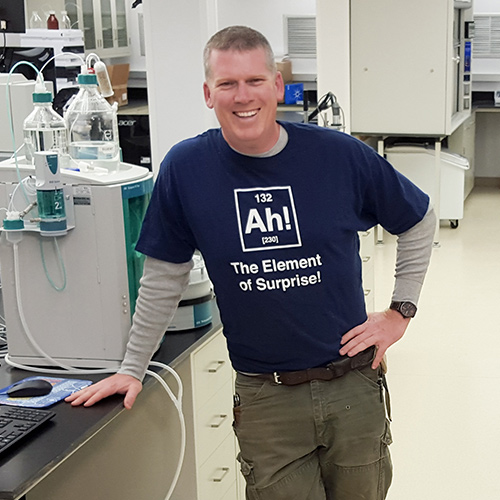
Mike Adams (aka the "Health Ranger") is the founding editor of NaturalNews.com, a best selling author (#1 best selling science book on Amazon.com called "Food Forensics"), an environmental scientist, a patent holder for a cesium radioactive isotope elimination invention, a multiple award winner for outstanding journalism, a science news publisher and influential commentator on topics ranging from science and medicine to culture and politics.
Mike Adams also serves as the lab science director of an internationally accredited (ISO 17025) analytical laboratory known as CWC Labs. There, he was awarded a Certificate of Excellence for achieving extremely high accuracy in the analysis of toxic elements in unknown water samples using ICP-MS instrumentation.
In his laboratory research, Adams has made numerous food safety breakthroughs such as revealing rice protein products imported from Asia to be contaminated with toxic heavy metals like lead, cadmium and tungsten. Adams was the first food science researcher to document high levels of tungsten in superfoods. He also discovered over 11 ppm lead in imported mangosteen powder, and led an industry-wide voluntary agreement to limit heavy metals in rice protein products.
Adams has also helped defend the rights of home gardeners and protect the medical freedom rights of parents. Adams is widely recognized to have made a remarkable global impact on issues like GMOs, vaccines, nutrition therapies, human consciousness.
Please contact us for more information.
















